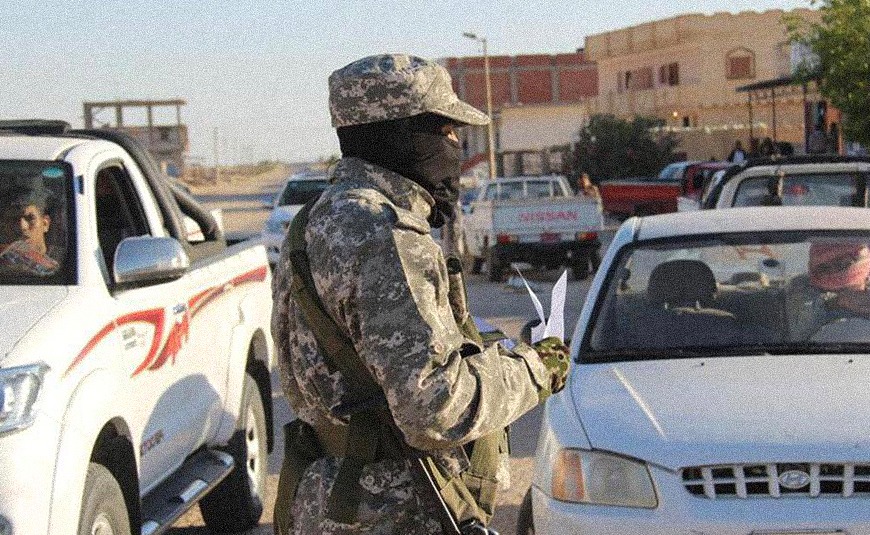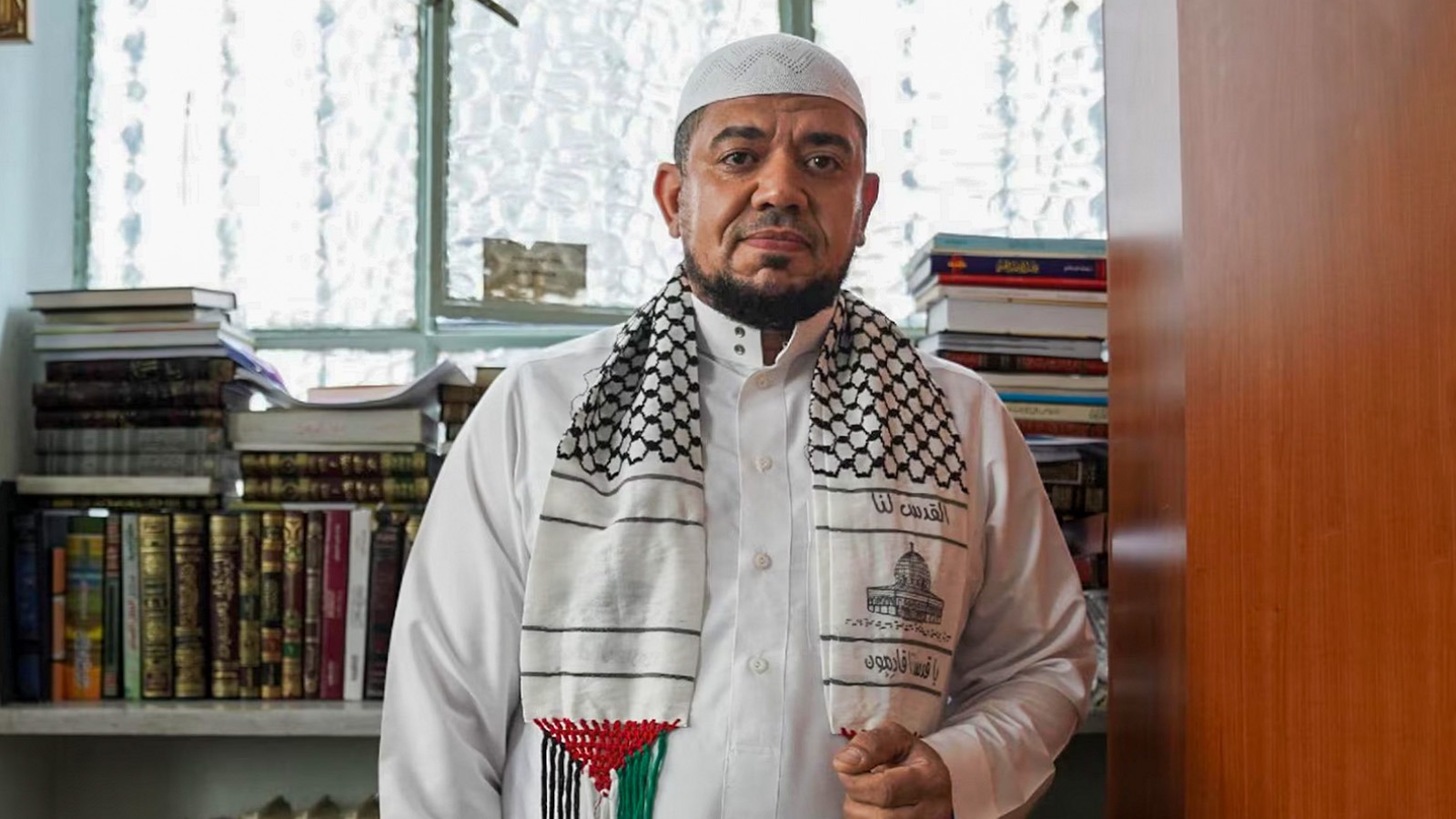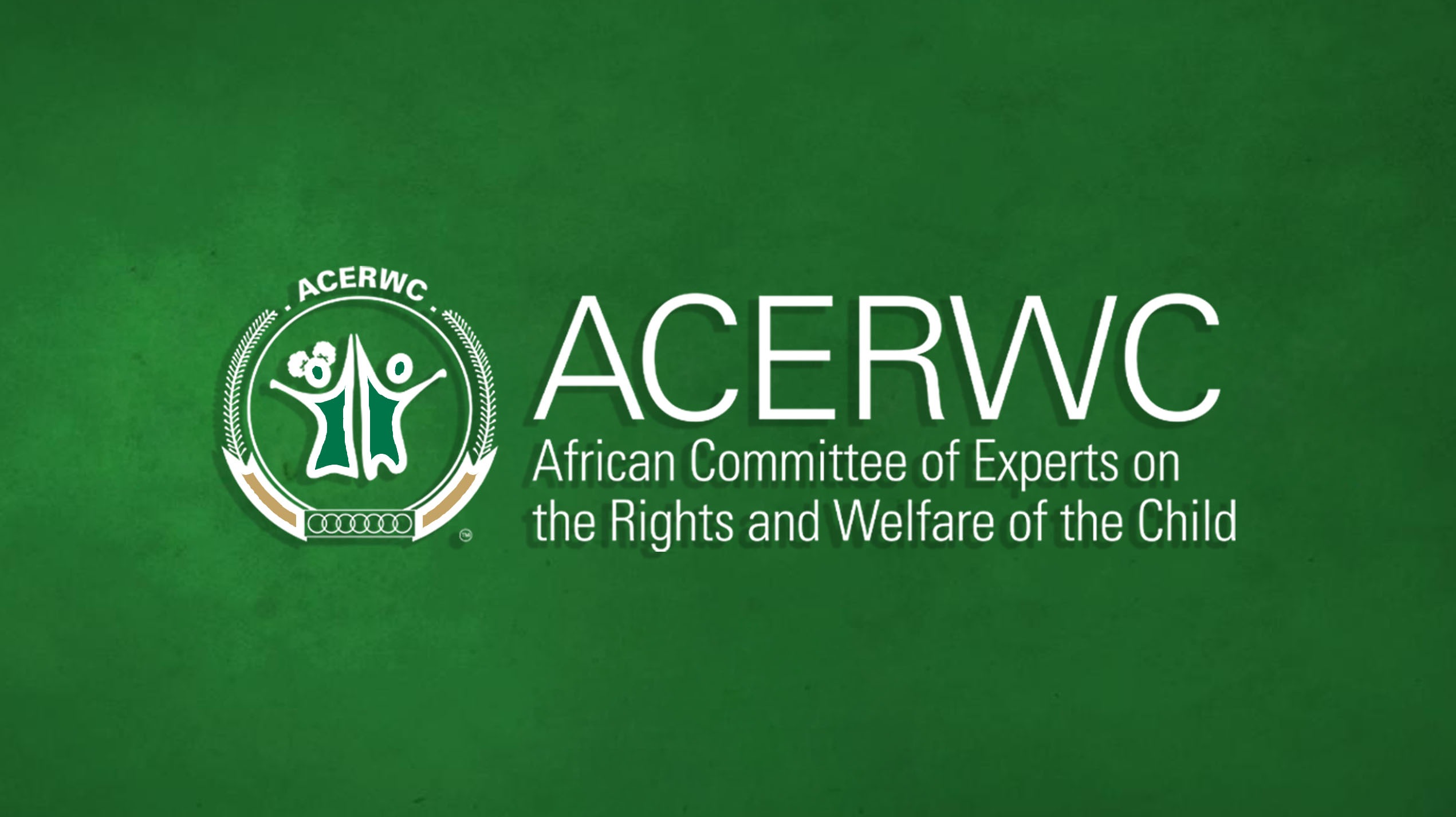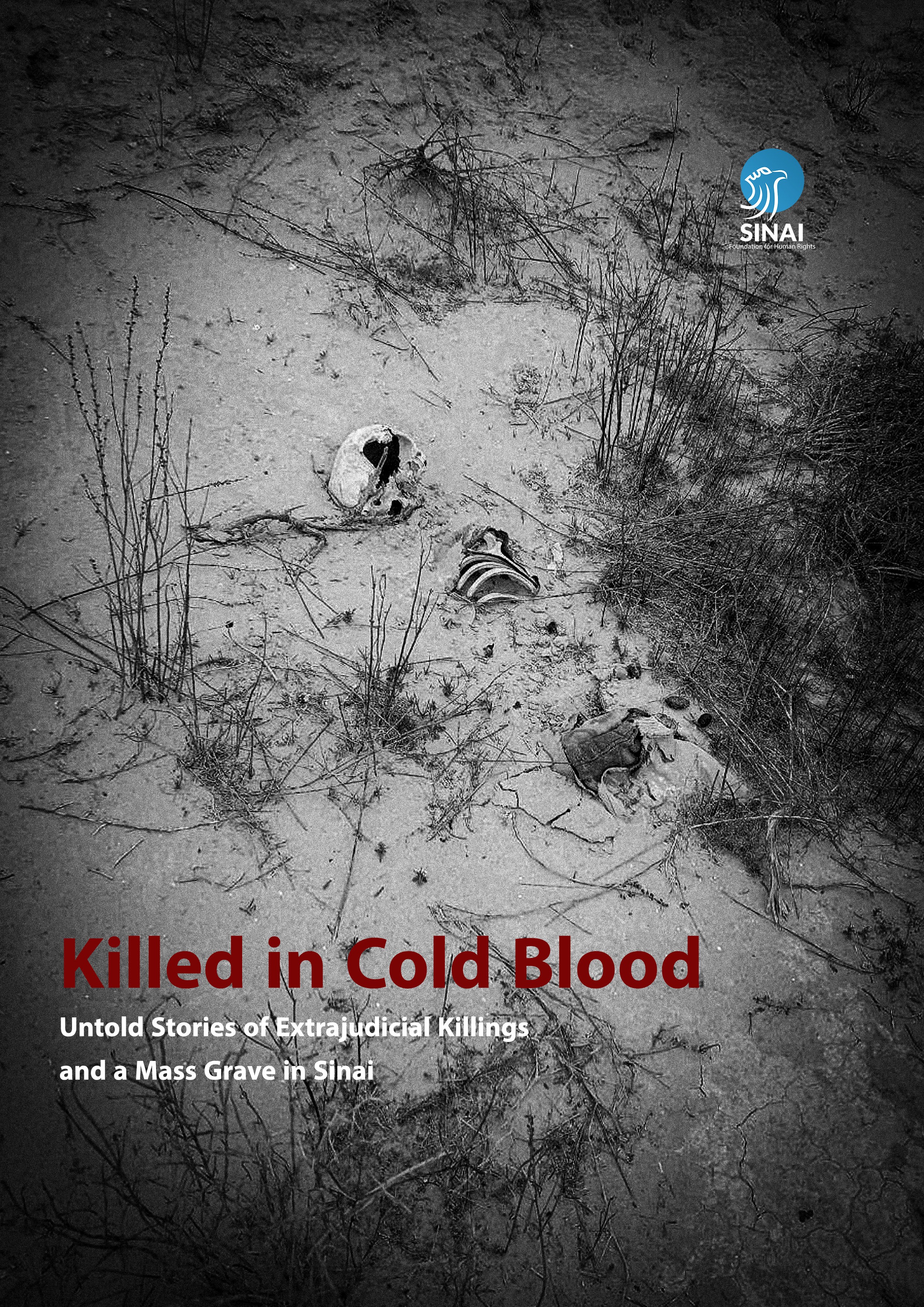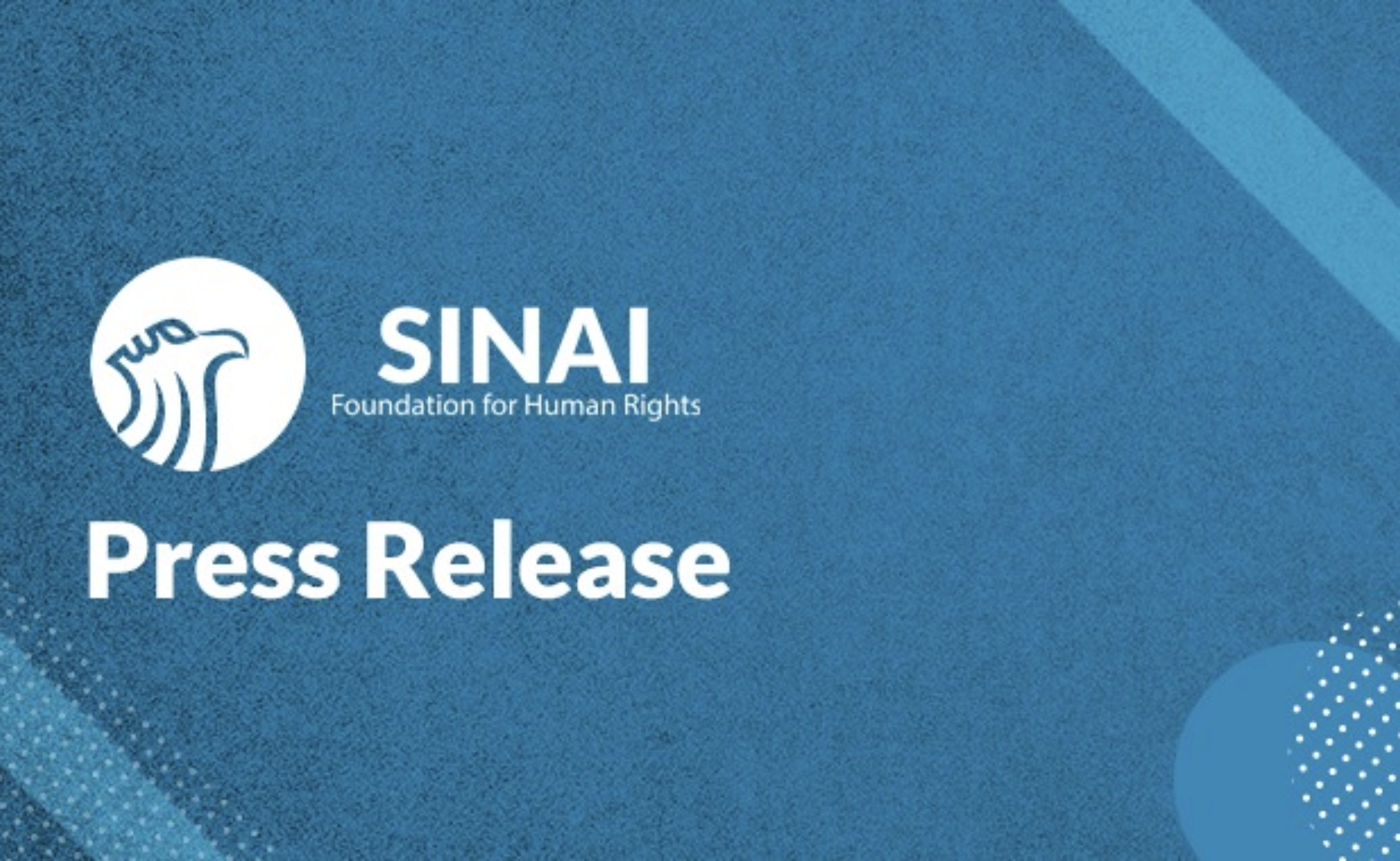“What happened is a catastrophe. We are not safe at home or on the street. How do Takfiris make it to the middle of the village with their cars and motorcycles and abduct people, and not a single shot is fired at them. Military and police ambushes are everywhere!”
*An al-Amouria village in Bir al-Abd local talking to the Sinai Foundation team about the abduction of 15 men from the village.
Summary:
The Sinai Foundation for Human Rights has recorded 6 abuses during March in Bir al-Abd, al-Qantara Sharq, central Sinai, and al-Sheikh Zwayed, and conducted interviews with 9 eyewitnesses and relatives of the victims and recorded their testimonies in the foundation’s March report.
During the first week of March, two abuses took place, one of which was an extrajudicial murder of a Christian citizen thought to have been targeted by ISIS militants while inspecting his properties, which led him to be between the villages of Gilbana and Balouza in western Sinai. The Sinai Foundation has also recorded the murder and injury of 4 by an explosive device planted by ISIS in farms in Tofaha in Bir al-Abd, killing two children.
The second week witnessed the expansion of militants’ area of activity and targeting of civilians in Sinai, as ISIS militants attacked a tribal symbol of the city of al-Hasana in central Sinai after sneaking into his house and killing his son, then abducting him and later dumping his body. According to testimonies acquired by the Sinai Foundation, he might have been targeted as a result of his ties to the government authorities as one of the area’s known elders, which ISIS consider to be a ground for killing and abusing civilians.
During the third week, the Sinai Foundation team reported the murder of a woman in her fifties, and the injury of her daughter by an indiscriminate artillery shell that hit close to the family’s home while they were tending to their livestock. In the same day, in a different area in al-Sheikh Zwayed, two children were injured by shrapnel in different parts of their bodies, as a result of the explosion of a foreign object in a farm while they were playing close by.
As for the fourth week, a terrible incident took place, where ISIS militants abducted 15 men from al-Dawaghra tribe in Amouria village in Bir al-Abd. According to the locals’ reports, the abduction could have been with the claim that those men were in cooperation with the Egyptian security forces, even though the victims were civilian fishermen.
Details of the abuses:
Egyptian authorities and law enforcement forces abuses
An indiscriminate artillery shell killing a woman and injuring her daughter in al-Thahir village southern al-Sheikh Zwayed
Some years ago, the environment in the Sinai Peninsula became very dangerous, with civilian lives always in danger. Artillery shells are one of the causes behind the death of many and turning the area into a warzone. Because of those dangers, article 51, point 4-c of the additional protocol (I) to the Geneva Conventions, 1977, prohibits indiscriminate attacks, which are those which employ a method or means of combat which cannot be directed at a specific military objective, and therefore could hit, in such a case, military targets, civilians, and civilian properties with no distinction.
It is common in Sinai for shelling victims not to receive any compensation for the harms done to them, as the incidents are written up as against persons unknown, which dismisses any legal liability that could be judicially used to prosecute the perpetrators and allow the victims to receive compensation appropriate to the damages done.
Al-Thahir village is one of the villages in southern al-Sheikh Zwayed, and according to the Central Agency for Public Mobilization and Statistics’s 2016 data, it has a population of about 2731, half of which are women. This number has gradually decreased due to successive waves of evacuation, making the current population count 200 according to the Sinai Foundation estimation. Indiscriminate shelling and shootings have caused the fall of many civilian victims, which led tens of families to leave the village. Lack of basic services has also increased the suffering of civilians and caused them to move.
The village has also suffered frequent power and water service outages for extended periods of time during the past years, reaching up to three months, according to what has been reported by the Sinai Foundation during the first quarter of 2020, which led the only groundwater well in the village, which feeds nearby Bedouin communities, to shut down.
On 18.03.2021, the Sinai Foundation also recorded the fall of several artillery shells near al-Thahir village 5 km south to al-Sheikh Zwayed, one of them killing a woman named Ghanima Abdullah Suilem, 54, and injuring her daughter Intisar Eid Salim, 27, from al-Sawarka tribe. According to a testimony acquired by the Sinai Foundation for Human Rights, the woman and her daughter were tending to their livestock by their house when the shell hit close to them.
After the shell hit, the locals hurried over to them to transport them to al-Sheikh Zwayed Central Hospital, then to al-Arish General hospital, then the mother’s body was moved to Port Said so the coroner could determine the cause of death, a journey which took 3 days, so the body could be returned to the village to be buried in the village cemetery where many indiscriminate shelling and shooting victims are buried.
The Sinai Foundation team met with one of the village’s locals, who said: “The afternoon of March 18th, shells were falling southwest of the village. We saw smoke after every shell hit. The military were probably targeting al-Muqataa village and its surroundings, which are uninhabited, but we suddenly heard an explosion about 200 meters or a little further away from the corner of the village, and we saw smoke. We ran to see what had happened, and we saw an artillery shell near a civilian house where an old couple lived with their daughter and her children. The shocking thing was what we saw in front of the house. The old woman had been tending to their livestock with her daughter. We saw the woman on the ground, covered in blood, and the girl was standing next to her, screaming and bleeding. The children were inside the house, and the old man wasn’t there. It was a catastrophe, what could we do? We brought a pickup truck belonging to one of the locals and then informed the ambush near the village, so they’d let us out and inform other ambushes on the way to al-Sheikh Zwayed hospital. We took them to the hospital. It was a terrifying sight, especially with 4 children screaming from the shock of seeing their grandmother and mother covered in blood. Some women from the village took the children and tried to calm them down and stop them from seeing their mother and grandmother like that. This has happened in the village before. Men and women are hit by indiscriminate gunshots and it’s all said to be done by persons unknown. Only God can compensate those people.”
Another eyewitness spoke with the Sinai Foundation team, forming a full image of the incident, saying: “The artillery ambush by the entrance to al-Sheikh Zwayed was firing shells toward the south at that time. This ambush is known for being an artillery ambush that fires at villages from which people had moved, and the shells sometimes fall on inhabited villages. Some shells even reach further than 20 km. They have Howitzer artillery guns.”
Indiscriminate artillery shells are one of the causes of Sinai turning into an environment dangerous to civilians. The Sinai Foundation recorded the injury of a teacher while performing his duties in a school in al-Zawaraa village in al-Sheikh Zwayed on 28.02.2021, where he was hit by a piece of shrapnel in his right hand, following the fall of an indiscriminate shell in the area.
An explosive foreign object injuring two children in al-Mania village in al-Sheikh Zwayed
The International Humanitarian Law obligates conflicting parties in control of a land to guarantee the safety of civilians and secure their areas of residence. Despite that, the Sinai Foundation recorded on 18.03.2021 the injury of two children by shrapnel in different parts of their bodies in the village of al-Mania, located south of Abu-Tawila village in al-Sheikh Zwayed, as a result of the explosion of a foreign object. The children were then transported to al-Sheikh Zwayed hospital, then to al-Arish hospital.
The injured children are:
-
Akram Akil Khudaira al-Mainy, 9 years old.
-
Mohamed Mohamed Eid al-Mainy, 3 years old.
The Sinai Foundation team got in contact with one of the village’s locals, who said: “We are one of the few villages still inhabited. Close to us are empty or near-empty villages like al-Muqata, al-Aqour, and al-Shahaween. We are always scared of being shelled or shot, but the village was not shelled on that day. The shell was probably old, or it was a grenade and the kids played with it. People are saying that they were playing with a “capsule”, which is what the locals call objects like mines and canisters. We do not know how that object ended up there. We think it might have fallen there but didn’t explode till the kids played with it. Since that day we’ve been warning our kids against playing with unknown objects and to not go far from home out of fear for them from such incidents. People have been killed before by shelling and gunfire in the surrounding villages.”
ISIS-affiliate group, Sinai Province, abuses
Extrajudicial murder of three civilians in two different areas
The International Humanitarian Law dedicates protection to civilians from being targeted during conflicts, as the Geneva conventions concerned with armed conflict have agreed in article 3 on the prohibition of “violence to life and person, in particular murder of all kinds” of civilians and those unable to fight, as well as dedicating special protection to minorities. Extrajudicial murder is a gross violation of Human Rights that is recurring in Sinai, and it is an inherent practice by ISIS. Arbitrary deprivation of the right to life is a violation of article 3 of the Universal Declaration of Human Rights, and article 6 of The International Covenant on Civil and Political Rights. The African Charter on Human Rights also stated in article 4 that civilians’ right to life is to be safeguarded at all times, including during conflict, while the African Commission on Human Rights considered it to be a pillar of all rights that is non-derogable.
In March, the Sinai Foundation recorded two separate incidents with 3 civilian victims, one of whom is a Christian citizen. In the first incident, armed men thought to be part of the ISIS affiliate group, Sinai Province, murdered a Christian citizen called Subhi Samy Abdul-Noor on 03.03.2021. The victim was in his 30s and he was from al-Husainia in al-Sharqia while he was between the two villages of Gilbana and Balouza, western Sinai, to inspect his properties.
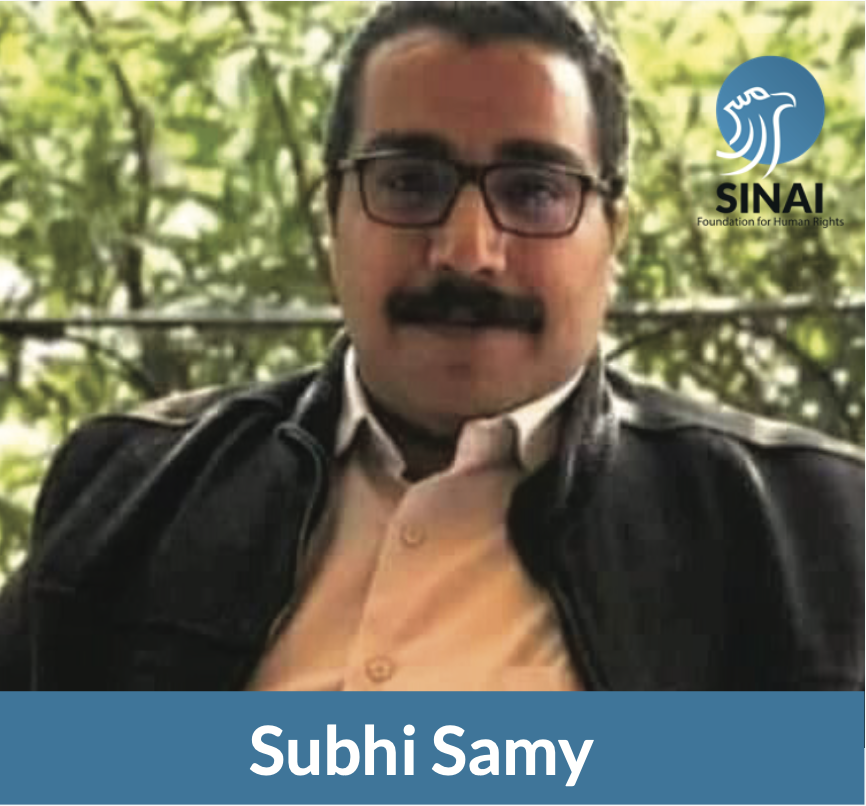
The Sinai Foundation team met with a farmer living in Gilbana village to get more details on the incident. The farmer said: “There were 4 Takfiris, most of them were young. They were masked and riding two motorcycles. They waited for the victim between the villages of Gilbana and Balouza about 500 meters from the entrance to Balouza. When they saw him, they stopped him and made him get out of his car after seeing his ID. He begged them but they shot him, and he died at once. They took his money and one of them quickly got into the victim’s car and drove away in it. They went through sideroads covered by farms, so no one knew where they went.”
The Sinai Province group never announced the reason behind targeting Subhi, but ISIS tend to target minorities such as Christians, Sufis, and those having ideologies or religious views opposing to the group’s. On 08.11.2020, the Sinai Foundation for Human Rights recorded the abduction of a Christian jewelry merchant called Nabil Habashi Salama, and no one knows what happened to him till this day.
In the second incident that took place on 11.03.2021, militants thought to be affiliated with ISIS targeted a man and his son in al-Mashaba compound in al-Hama village, al-Hasana, central Sinai. The perpetrators sneaked into a citizen’s house and murdered Abdul-Aziz Salama Suilem al-Kambizy Trabin, 20, and abducted his father Salama Suilem Trabin, 40, whose body was found at the outskirts of the village hours later.
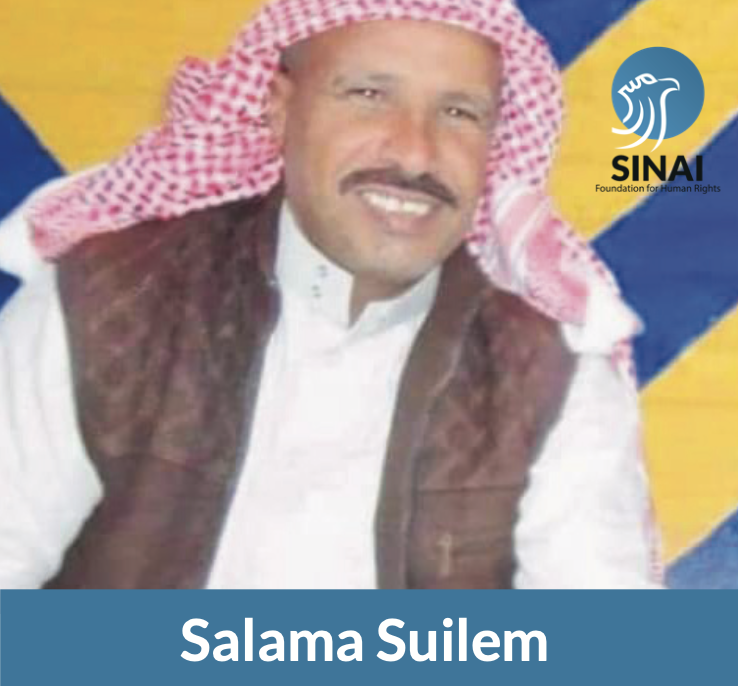
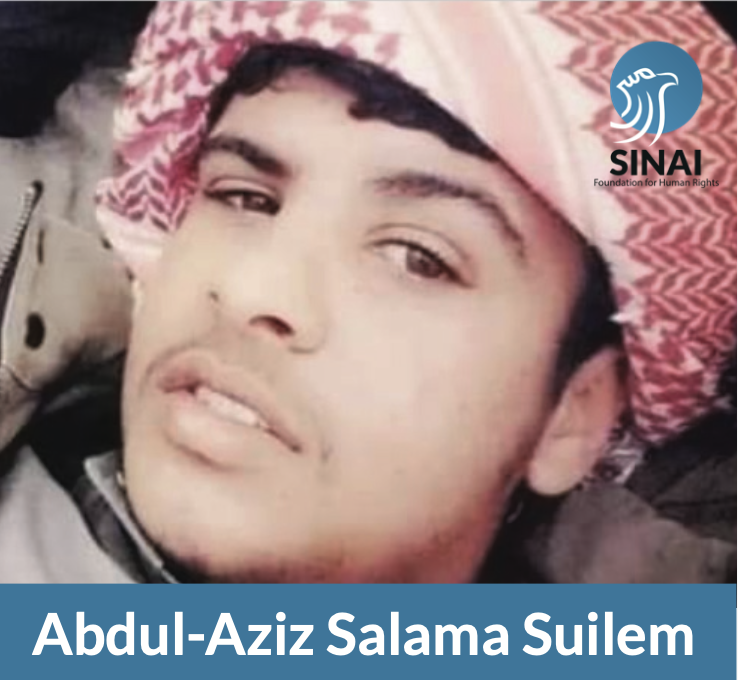
The Sinai Foundation team contacted one of the area’s locals, who said: “The Takfiris got inside the house at dawn. The houses in the area are far from each other. They broke the door and when they saw the young man, Abdul-Aziz, they captured him and pointed guns at him, then forced the women inside the house. When Haj Salama woke up because of the loud noise, the militants killed Abdul-Aziz and tied his father, Salama al-Kambizy, up, then took him into a Nissan car and hurried into the mountains. Everyone heard the gunshots and when they saw the car drive away, they went to al-Kambizy house and learned what had happened. People took their cars and tried to follow the Takfiris, but no one could catch up with them. A little bit before afternoon, people found Salama al-Kambizy’s body. He’d been shot in the head near the village. The son’s body had been taken to the university hospital in Ismailia for the burial permit followed by his father’s in the evening.”
Sources revealed to the foundations team that the deceased, Salama Suilem al-Kambizy, was one of the area’s elders, and that his late father had been a famous customary judge from al-Trabin tribe. The sources suggested that the reason behind the targeting and murder might have been due to Salama al-Karmizy’s extensive relationship with government authorities as one of the known elders of the area.
The abduction of 15 civilians from the village of Amouria in Bir al-Abd
Civilian abductions are a pervasive pattern of abuse is Sinai. ISIS group is used to abducting civilians and keeping them for long periods of time as part of a strategy they follow with the aim of asserting their dominance and punishing anyone they deem as supporters of the Egyptian authorities. The International Humanitarian Law prohibits strategized abductions and enforced disappearances. The United Nations declaration on enforced disappearances, unanimously approved, states that enforced disappearances are a violation of a range of rights, including the right to recognition as a person before the law, the right to liberty and personal security, the right not to be tortured or treated or punished in an inhuman or degrading way, and that they violate the right to life, or pose a serious threat to it. The Statue of the International Criminal Court also considers it to be “a crime against humanity”.
On 25.03.2021, the ISIS-affiliate Sinai Province group abducted 15 al-Dawaghra civilians in Amouria village eastern Bir al-Abd with the claim that they are in cooperation with the Egyptian security forces. According to the locals’ reports, most of those abducted were related to one another and worked as fishermen. The abducted are:
-
Mohamed Mughnim Himdan.
-
Suliman Mohamed Mughnim.
-
Mousa Mohamed Mughnim.
-
Youssef Mohamed Mughnim.
-
Ghuraiqid Ghanim Salman.
-
Mohamed Ghanim Salman.
-
Khalil Mughnim Ghuainim.
-
Mahmoud Mohamed Saada.
-
Salim Mughnim Ghuainim.
-
Hamid Ahmed Ghuainim.
-
Saad Sabah Saada.
-
Hussain Suailim Farhan.
-
Ibrahim Suailim Farhan.
-
Farhan Gumaa Saleem.
-
Salim Ghuraiqid Ghanim.
The Sinai Foundation for Human Rights team contacted two of al-Amouria village’s locals, one of whom said: “The victims were invited to a dinner feast at the home of one of their relatives. Suddenly two Nessan cars arrived, and they had with them motorcycles watching the road from further away. The men were all masked and armed, and some of them had what looked like devices covered in wires. What I heard is that they went inside and held the people inside at gunpoint, then told them all to get into the Nessans one after the other. Some of the Takfiris were binding those who got into the cars and telling them to look down and not to raise their heads. They ordered the people to keep their voices down, and threatened women that got out of the surrounding houses because of the noise and told them with Bedouin and Egyptian accents to ge into their houses and not to look, while pointing their guns at them. They then drove away surrounded by the motorcycles, heading south. The south is a desert beyond the farms. People called to report what had happened, but the security forces didn’t even move to see how it all happened.”
The second local said: “What happened is a catastrophe. We are not safe at home or on the street. How do Takfiris make it to the middle of the village with their cars and motorcycles and abduct people, and not a single shot is fired at them. Military and police ambushes are everywhere! Who is responsible for those abducted people? Who will get them back safe and reassure their kids, or just make their families feel like the government is looking for them? If the Takfiris killed the abducted men, do you think the government will react? I don’t think so. They’re not so different from those before them. People die and no one bothers to try and compensate their families.”
The locals expressed their anger at what happened, as the military and the police did not react quickly and failed in tracking the perpetrators despite the large number of ambushes in the area. The locals also added that those ambushes are only good for searching cars passing through the international road and stopping suspicious citizens. There are also ambushes at the entrances to the villages with no sufficient security of the sides facing the desert through which the Sinai Province group members always get into and escape the villages unobstructed.
The Sinai Foundation had recorded a similar incident in Amouria village on 17 March 2019, where the group abducted 10 civilians passing through the international road, then released 6 of them. Weeks later the group made 4 civilians get out of a pickup truck, then stopped passing cars on the international road between al-Qantara and al-Arish, then the militants slaughtered the four men on the roadside, which caused severe terror to the people. It was later revealed that the victims were civilians accused by the group of being in “cooperation” with the Egyptian security forces, according to the statements released by the group. The families of the current abduction victims remember this incident well and are afraid for their children meeting the same fate.
The Sinai Foundation also reported on similar incidents that took place in different areas where the group abducted civilians, claiming that they were in cooperation with security forces. Those cases include the abduction of a child called Ahmed Farrag Suliman Farrag al-Kiky,16, on 05.02.2021 in al-Shallaq village in al-Sheikh Zwayed, where the group snuck into the village, abducted the boy, then slaughtered him and later dumped his body. 3 fishermen who worked in al-Bardawil lake were also abducted while passing through al-Tlul village on 23.12.2020 and were taken toward the desert.
Indiscriminate weapons killing and injuring civilians in Tofaha area in Bir al-Abd
The International Humanitarian Law obligates all parties of an armed conflict to differentiate between civilians and combatants during any conflict. This principle applies to all parties in an armed conflict and stays in effect no matter the type of conflict or the parties involved, which was emphasized by article 48 of the additional protocol (I) to the Geneva Conventions, 1977. Article 51 of the same protocol also prohibits indiscriminate attacks, which are those which employ a method or means of combat which cannot be directed at a specific military objective, and therefore could hit, in such a case, military targets, civilians, and civilian properties with no distinction.
The explosion of an explosive device in a civilian vehicle in a farm in Tofaha area in Bir al-Abd on 05.03.2021 killed two children and injured two men from the same family. The victims are:
The killed:
-
Abdul-Rahman Farag Salman, 13 years old.
-
Mohamed Suliman Salman, 7 years old.
The injured:
-
Suliman Salman Sulaitin.
-
Sulaitin Salman Sulaitin.
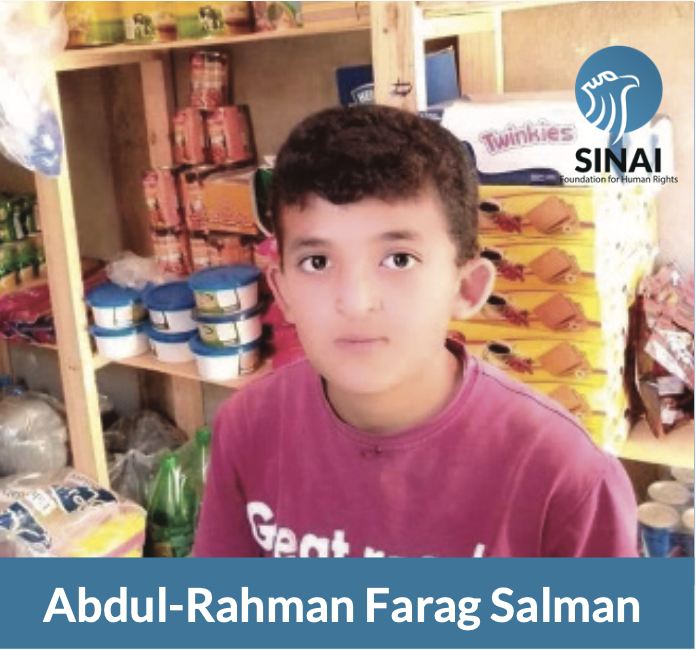
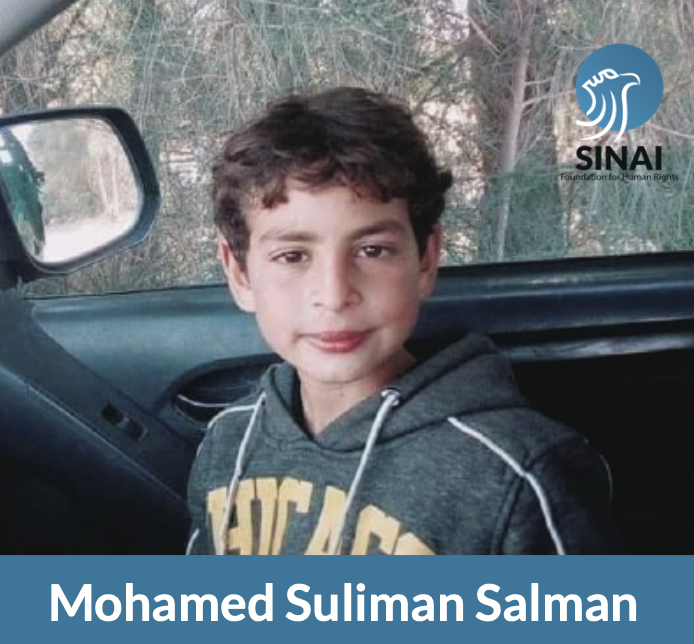
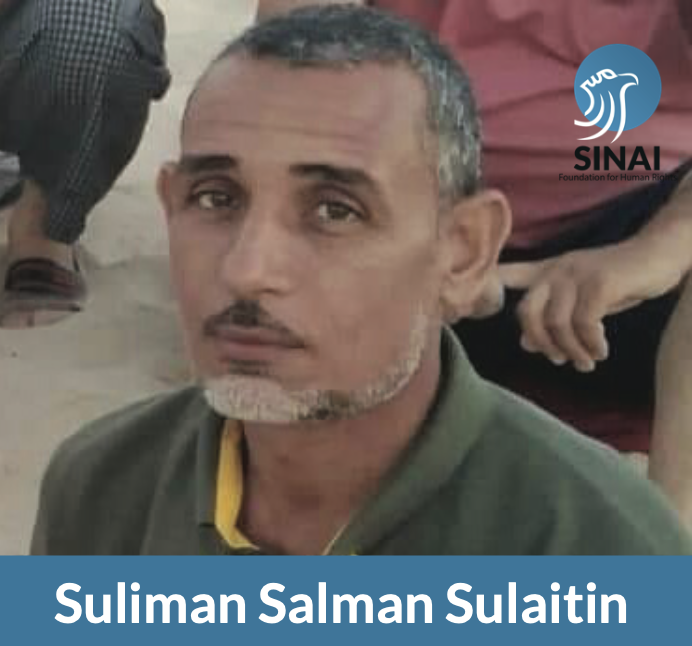
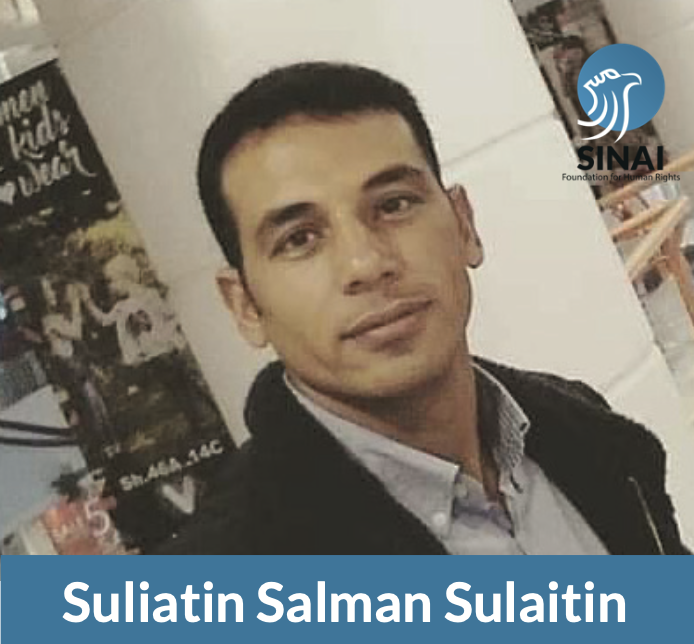
The Sinai Foundation for Human Rights met with an eyewitness, who said: “The day prior to the incident, they were in their farm to check on it after a long time of civilians being prohibited from going to Tofaha because of military operations. They stayed there and took the same road home where the accident happened with no problems. The next day, March 5th, while going through the same road they took the previous night, Mr. Sulaitin, Mr. Suliman and two children in the car, an explosive device blew up. It seems like the terrorists planted the device at night to target the military. After the explosion, we learned of the children’s death, Abdul-Rahman Farag Salman and Mohamed Suliman Salman, and the injury of Mr. Suliman and his brother Sulaitin. They were transported to Bir al-Abd General Hospital by civilian cars for treatment. The locals gathered by the hospital, some donating blood, and others just to support the family. It was extremely sad. We waited for the burial permits for the kids to be buried at night. It was heart breaking.”
A Bir al-Abd resident told the Sinai Foundation: “The Takfiris don’t care for people’s lives. Over a month ago, another device exploded in a water tank, killing the driver, in the same place where this device exploded. A day before the two kids were killed, people were at the place of the incident and didn’t see any explosives, which means that the Takfiris planted it at night, knowing well that residents frequent that area to tend to their farms. The Takfiris don’t care who uses those roads.”
This explosion was not the only one. The next day, an explosive device exploded in a tractor between the villages of Qatia and Iqtiya in Bir al-Abd. No casualties were reported, but the tractor was severely damaged.
Those incidents have become a pattern to which the people of North Sinai are used. They are used to the devastation and damages caused by such incidents. The use of indiscriminate weapons is a recurring practice by the conflicting parties. For example, the Sinai Foundation for Human Rights recorded on 24 October 2020 the death of 5 women and the injury of 4 others from one family because of explosive devices planted by ISIS in Iqtiya village in Bir al-Abd when the group had control of the area, and later the military neglected to comb the area and remove waste and explosives. That painful incident was one of seven similar incidents recorded by the Sinai Foundation in its October report.
Recommendations:
To the Egyptian authorities
-
Conducting transparent investigations into the incidents of which members of the military and security forces were part, that led to the fall of civilian victims.
-
Lifting discriminatory and illegal restrictions off business and fishing and movement in Sinai and offering immediate and fair compensations to citizens who were harmed by said restrictions.
-
Complying with principles of the International Humanitarian Law by the military and security forces is an important basis that guarantees professionalism in performing their duties. Officers and military personnel should be taught those rules and trained to abide by them through curricula in the military academy and other training courses.
-
Inviting and accepting visitation requests from UN special procedures mandates to Sinai, and allowing them unhindered access, and guarantying the safety of those who cooperate with them from punishment.
-
Modifying laws and systems that grant unlimited authority to the security and military forces, including the state of emergency and the counterterrorism law, and implementing mechanisms that guarantee judicial and legal supervision on law-enforcement authorities.
To all conflicting parties, including Sinai Province militants:
-
Taking all possible precautions to protect civilians, according to the International Humanitarian Law, during any military land or air raids.
-
In areas where the unlawful side of the conflict is the ruling force, all necessary precautions are to be taken to protect the rights of all inhabitants without discrimination and ensure all basic needs of civilians.
Related Postes
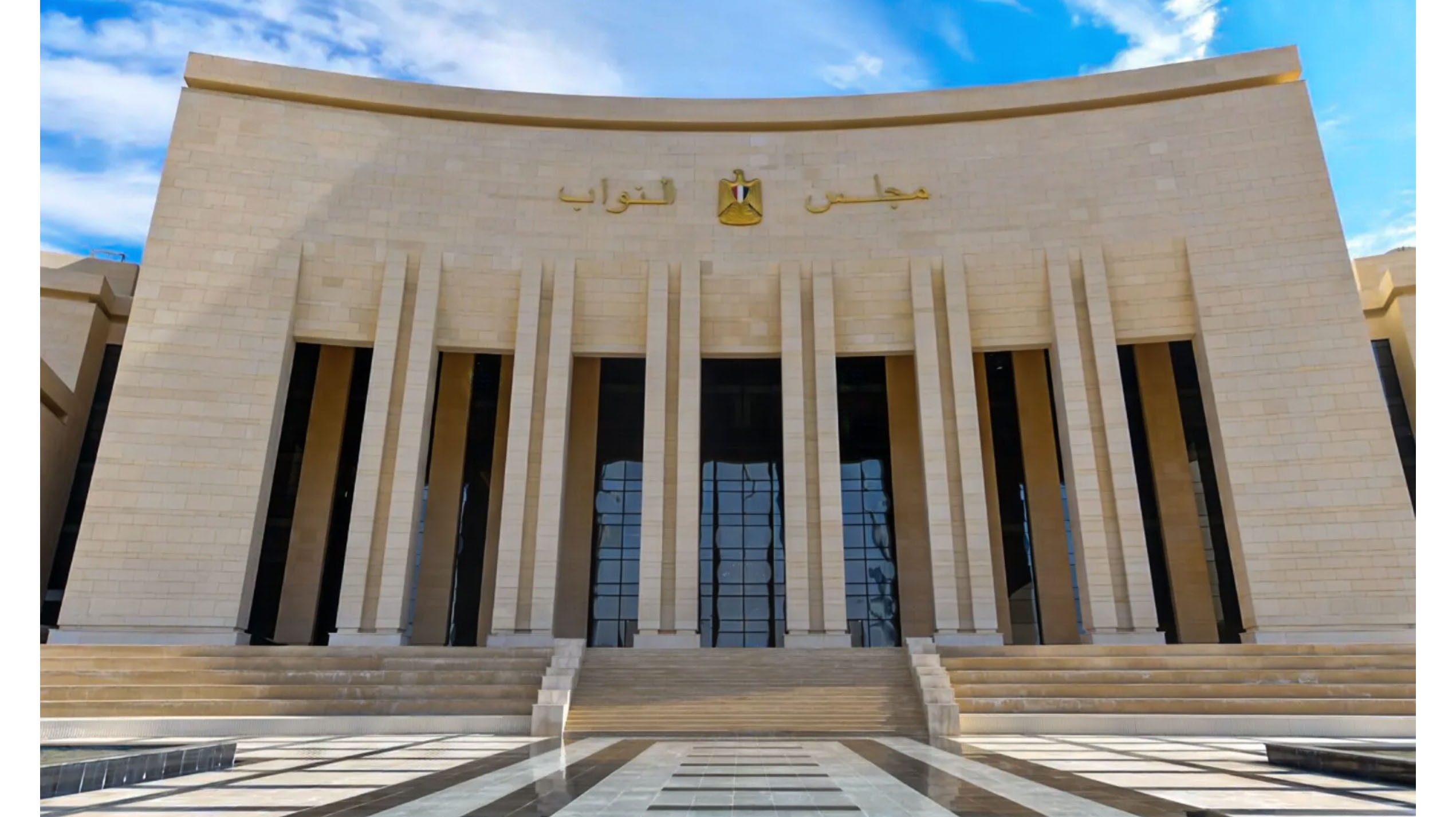 English content
English content

